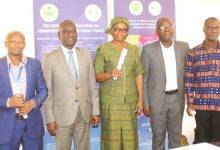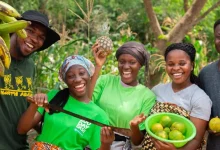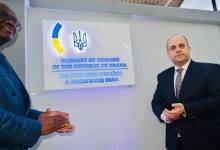Ghanaians have been urged to uphold the practice of hand washing with running water and soap as the world commemorates this year’s World Water Day amidst the coronavirus (COVID-19) pandemic.
“We are not in normal times when the world, including Ghana, is currently facing the COVID-19 pandemic. Water plays an important role in keeping ourselves safe from exposure to the deadly virus,” according to the Ministry of Sanitation and Water Resources.
A statement issued by Cecilia Abena Dapaah, the Sector Minister in Accra last Sunday to commemorate the day said hand washing was one of the best precautionary measures against the deadly disease.
“We are all therefore entreated to encourage and share knowledge and experience with whom it matters for a positive chain reaction across the entire country,” it said.
The United Nations (UN) has designated March 22 of every year as International World Water Day to focus global attention on the importance of water with this year’s edition on the theme, “Water and Climate Change.”
According to the statement, by using water more efficiently, the world would reduce greenhouse gases.
If the world limited global warming to 1.5 degrees Celsius above pre-industrial levels, it said climate-induced water stress could be cut by up to 50 per cent, whilst climate-resilient water supply and sanitation could save the lives of more than 360,000 infants every year.
Since the Paris 2015 conference on climate change, it said Ghana had made efforts towards reducing emissions from deforestation through conservation practices, enhancement of forest carbon stocks, and land-use mitigation measures.
Additionally, it said the country had made progress in the provision of basic drinking water services to the population, including improving drinking water sources from 78 per cent in 2017 to 81 per cent in 2019.
The population with safely managed drinking water sources also increased from 27 per cent in 2017 to 36 per cent in 2019, whilst on the contrary basic access to drinking water sources reduced from 51 per cent in 2017 to 45 per cent in 2019.
Despite the progress made, illegal mining ‘galamsey’, and improper liquid and solid waste disposal, among others, it said, had affected the quality of water bodies as the proportion of rivers with poor ambient water quality had reduced from 61 per cent in 2016 to 47 per cent at the end of 2018.
On the way forward, the statement said a mixture of initiatives such as large-scale initiatives to protect the quality of water supply; and small-scale initiatives at the community level to manage and store water, and the use of technology were needed.
“It is also a fundamental call for us to utilise water in ways to help reduce floods, droughts, scarcity and pollution, and help fight climate change itself,” it said, and called for concerted support.
BY TIMES REPORTER







